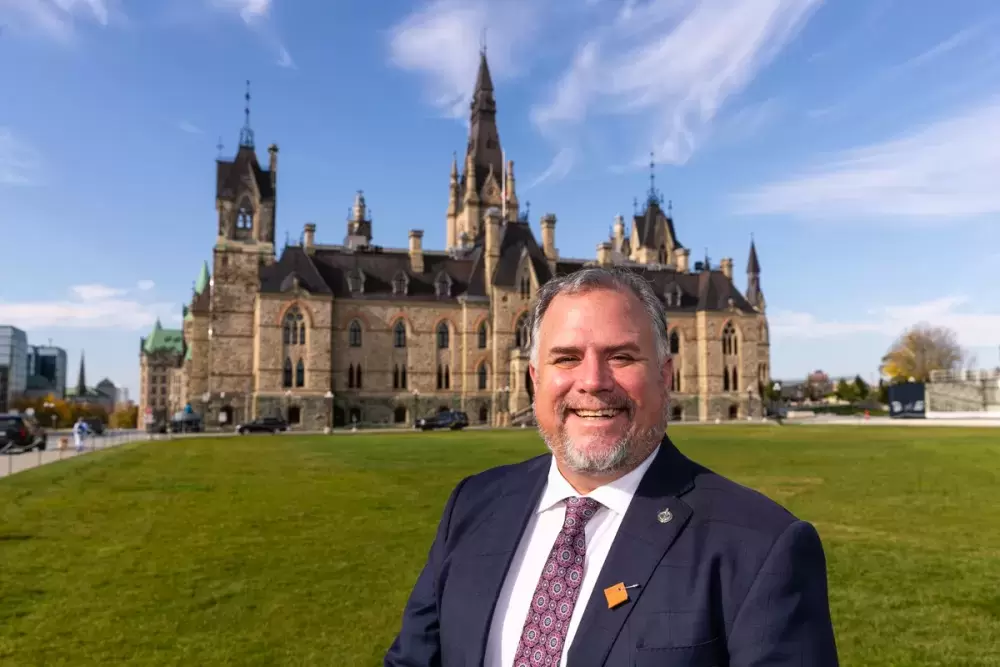All in all the federal government’s fiscal plan for this year presents a positive collection of initiatives to help the struggles of many Nuu-chah-nulth people, says Courtenay-Alberni MP Gord Johns - although the spending measures fall short in tackling the opioid crisis.
Liberal Finance Minister Chrystia Freeland presented the 2023 budget on March 28, a plan heavy on health care spending with a projected deficit of $40.1 billion over the next fiscal year. Approximately 70 per cent of the budget’s new spending is going towards health care, including a national dental program for those who don’t have coverage that alone accounts for $3.6 billion over the next year.
The budget was passed with the support of the NDP, and the dental coverage was included as part of the party’s agreement with the Liberals, who currently have a minority government.
“This was a significant amount of money that we negotiated to support this budget,” said Johns. “The dental care alone is the largest expansion of our healthcare system in over 50 years.”
Across Canada the availability of health care has fallen to critical levels. In British Columbia one in five residents are without a family doctor, forced to rely on walk in clinics and emergency rooms for medical treatment that would otherwise be routine. In Budget 2023 almost $200 billion is committed over the next decade to improve the health care system.
“Patients seeking emergency care have found their emergency rooms overwhelmed. Surgeries have been postponed or cancelled,” stated the budget’s overview. “Our public health care system, and the workers who uphold it, are under enormous strain—a situation that was made worse by the pandemic, and which requires immediate action to deliver better care for Canadians.”
The budget states that people in Canada are dying from drug overdoses at a rate of 20 per day. Six of these daily fatalities occur in B.C. alone, and Indigenous people are being affected at a rate five times greater than the rest of the population, according statistics from the First Nations Health Authority.
Seven years after the opioid crisis was declared a provincial public health emergency, Nuu-chah-nulth families are being hit with tragedy more than ever, including three men who died from illicit drug use in the span of a week in Port Alberni last month. Johns has long pushed for the toxic drug crisis to be given more attention in Ottawa, but this federal budget continues to show that the message is not coming through, he said.
Over the next five years $359.2 million is set aside for a drug and substances strategy that spans a wide array of programs. These include increasing a safer, prescribed supply of alternatives, supervised injection sites, measures to prevent drug use in young people, better enforcement to attack drug trafficking and more intensive lab analysis of what’s on the illicit market.
“This isn’t even one per cent of what they’ve spent on COVID-19,” commented Johns. “It’s not even close to a response that we would expect from a government in the middle of an epidemic.”
He noted that the “war on drugs” approach hasn’t worked anywhere in North America, as it criminalizes those who are already at the highest risk in using illicit substances.
“We need a rapid investment; we need a renaissance on how we respond to drug policy like Portugal did. They went out and built 96 therapeutic treatment centres,” said Johns. “It also saves money in health care costs, police, fire, ambulance, criminal justice.”
On the other side of the House of Commons the Liberals are being blamed for drafting a budget with a deficit that is roughly $10 billion more than what Freeland projected in the fall.
“After eight years, Justin Trudeau’s inflationary taxes and spending have created a cost-of-living crisis that is hurting the hard-working people of this country,” said Conservative Leader Pierre Poilievre in a press release. “Canadians are living in desperation, skipping meals, living in their parent’s basements, unable to drive to work, falling into depression, and even considering suicide because they cannot afford the pressure and the bills that this Prime Minister has imposed after eight long years.”
Suicide was actually attended to in the budget, with a 988 hotline operated by the Public Health Agency of Canada set to be available in November.
To provide immediate help with daily costs, a grocery rebate is being rolled out in the coming weeks, offering single people without children an additional $234, while a family with two kids can expect as much as $467.
“Eleven million people are going to benefit from another doubling of the GST rebate, which we got from the government last year,” added Johns. “Our priority, we’ve made it very clear, is to truly make critical investments that are necessary for Indigenous people.”
Like many across Canada, Indigenous people are being stressed by a shortage of housing, but this issue is particularly prevalent on some reserves, where multiple generations are crowded into the few available homes. The budget notes that since 2015 Canada’s Indigenous housing strategy has invested $6.7 billion into Aboriginal communities, and another $4 billion will be spent over seven years to improve the supply of homes for urban, rural and northern Indigenous people.

